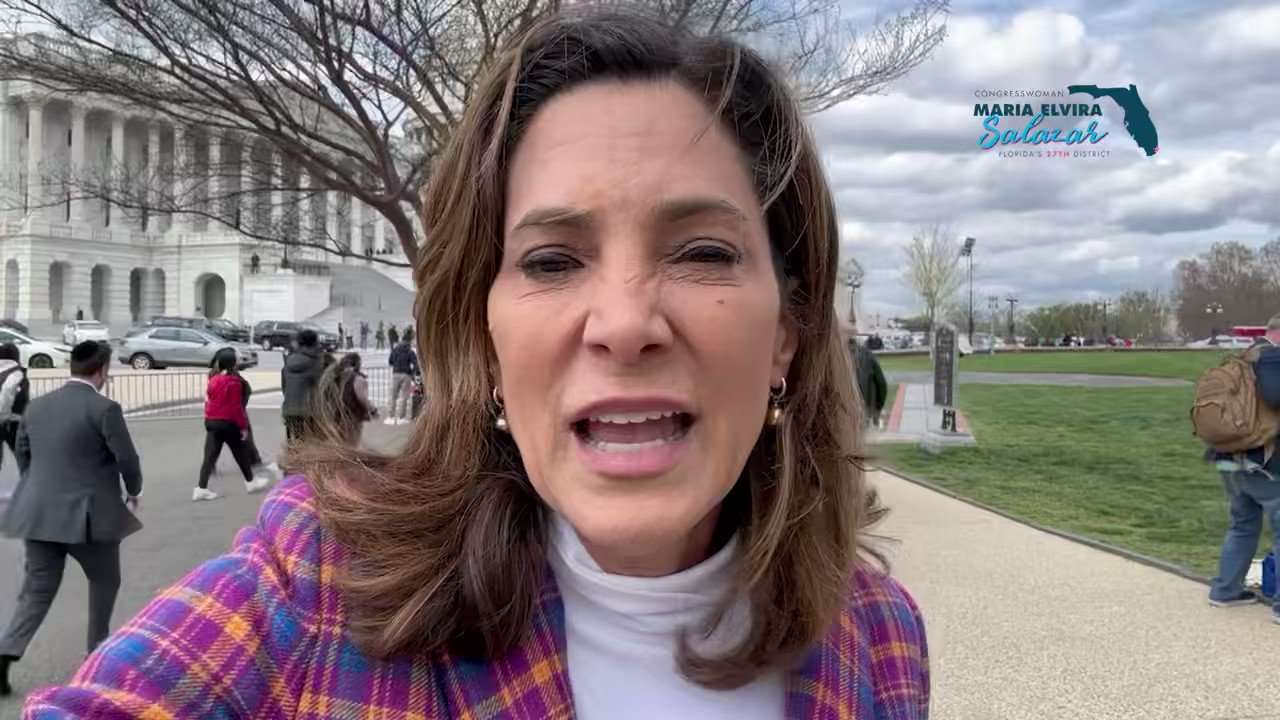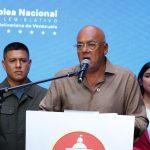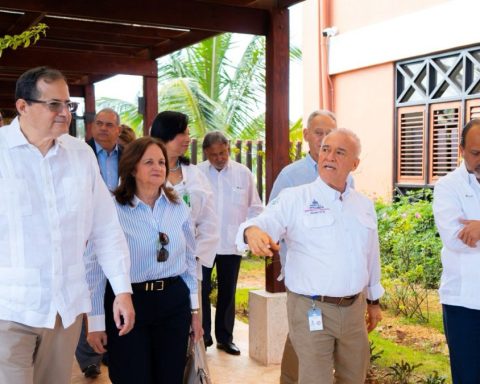The Foreign Relations Committee of the Lower House of USAin charge of international legislation, on Tuesday gave his support to a bill to prevent the government of his country from normalizing relations with Cuba “until democracy is restored on the island.”
The project, promoted by the Republican congresswoman María Elvira Salazar, from Florida, calls for prohibiting the Administration, in the present and in the future, from removing Cuba from the list of countries that sponsor terrorism while “free and fair elections” are not held. in Cuba, among other conditions.
The Foreign Relations Committee approved the FORCE bill, by Congresswoman @MaElviraSalazarwhich seeks to prevent any US president from removing the Cuban regime from the list of countries sponsoring terrorism, “until it is a constitutional democracy.” pic.twitter.com/1SRijMTNBF
— American Media (@AmericanoMedia) March 28, 2023
Legislation was also introduced in the US senate by Republican lawmakers Marco Rubio and Rick Scott.
Its approval in the House Foreign Affairs Committee was done with bipartisan support, Congresswoman Salazar’s office said in a statement.
In addition to demanding the holding of what the sponsors consider transparent elections, the law would make it a requirement for the normalization of relations that the Cuban authorities release all political prisoners and allow international human rights organizations to carry out investigations in Cuban prisons.
According to a report from Radio Television Martí, Republican Michael McCaul, Chairman of this Senate Committee, said: “In addition to harboring terrorists from Latin America, Cuba is allied with America’s adversaries, including Russia and China. The Cuban government remains in unison with these evil actors who seek to upset the global balance of power, and Cuba continues to support Venezuela’s brutal dictatorship.”
In another sense, the Democrat Gregory Meeks, a high-ranking member of the Committee, declared that “not being a democracy is not a criterion to remain on the list of countries sponsoring terrorism.”
If the legislative path that the bill must still follow is successful, President Biden would practically have his hands tied if he wanted to start a normalization path with Cuba, since the prerogative for this would fall to Congress.
Last Thursday, Secretary of State Antony Blinken ruled out removing Cuba from the list of countries sponsoring terrorism for now, in which it was included again by Donald Trump (2017-2021) during the final days of his term.
Blinken affirms that they do not plan to remove Cuba from the list of sponsors of terrorism
In the same Committee on Foreign Relations of the House of Representatives, the official responded that the Administration does not plan to “remove them from the list.” This is how he asserted after questions made to him, precisely, by Congresswoman Salazar during a hearing.
Cuba was first included on that list in 1982 during the administration of President Ronald Reagan, who cited support for groups in Latin America classified as terrorists by the United States government.
In May 2015, during the term of President Barack Obama (2009-2017), this position was reconsidered as part of the “thaw” in relations between the two nations.
But in January 2021, Trump included Cuba on the list again, allegedly for rejecting Colombia’s extradition request for members of the ELN, who claimed responsibility for a 2019 car bomb attack on a police academy in Bogotá, and for harboring American exiles.
Among other consequences, the presence of Cuba on the list of sponsors of terrorism results in limitations for everything related to humanitarian aid, business, investment, trade and transactions that involve the participation of the country, causing damage to its citizens, according to a analysis of the Washington Office on Latin America (WOLA).
In addition, Cubans with foreign citizenship or residents in the European Union have been denied or canceled the benefits of the Electronic System for Travel Authorization (ESTA) to the United States, and something similar has happened with their bank accounts. as they are considered, due to their nationality, “high risk” clients.
The selective inclusion in the list has also created additional difficulties for the Cuban government in accessing financing. Many banks, fearful of being accused of instigating terrorism and of the large fines that an infraction entails, “refuse to process Cuban payments and have frozen funds for permitted religious and humanitarian activities, which require an additional license,” the report notes. WOLA report.
“The designation of a country as a state sponsor of terrorism should depend on whether that country is actually sponsoring terrorism, as defined in the law that created the terrorism list, not on whether a country meets the many political and economic conditions of the 1996 Cuban Freedom Law and the Democratic Solidarity Law. Otherwise, the list of terrorism is meaningless”, he stated on this subject for OnCuba William LeoGrande, a professor at American University and an expert on Cuba-United States relations.
Efe/OnCuba














